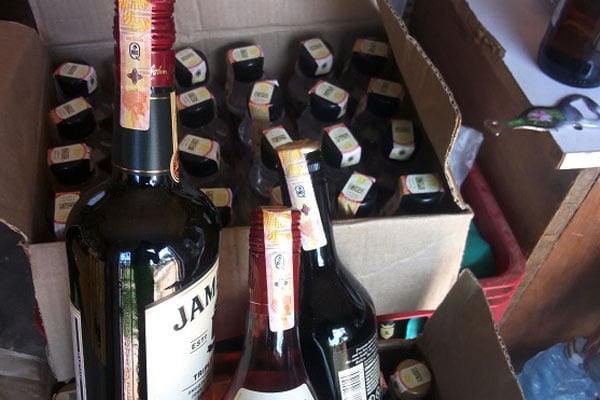Prime
An examination of PSFU report on DTS impact

Data indicates that local excise duty collections have been growing since the implementation of digital tax stamps. Photo / File
What you need to know:
- The report raises several issues, albeit some inaccuracies, which, if left unaddressed create a wrong impression on a system that seeks to improve tax administration
Last week, the Private Sector Foundation Uganda (PSFU) released a report.
The report, compiled by PwC looked at the impact of Digital Tax Stamps (DTS) on manufacturing.
It raises several issues, albeit some inaccuracies, which, if left unaddressed create a wrong impression about a system that has been key in improving Uganda’s tax administration, expanded the tax base under the excise duty regime, improved compliance, and reduced tax evasion.
Rightly, I will focus on the inaccuracies and misconceptions, some of which prejudice an otherwise good tax innovation.
Conflict of interest and transparency
The report recommends opening up the DTS space, suggesting providers such as Dentsu and Inexto that are under scrutiny in the European Union for alleged proximity to industries with unresolved investigations and related trials for contraband by signing agreements with the EU.
Thus, for the report to suggest that the space be opened up to allow other players, it could be argued it only seeks to favour particular actors, which is unusual, because opening up can only be done through a public tender that ensures transparency and accountability.
Omissions of significant findings
Numerous reports from international institutions, such as the International Monetary Fund, have highlighted the benefits of DTS in Uganda since 2019 and in other countries with similar systems such as Kenya and Tanzania.
Thus, to omit findings of such repute, and concentrate on objectified opinions of certain individuals, is unfair and must be corrected at the earliest opportunity.
Seeking objectivity
I have reached out to PSFU and PwC to seek an understanding of the methodology. Whether it was discussed and or approved by PFSU and its members, and whether it was shared with URA or the Ministry of Finance.
However, I have not had an opportunity to receive feedback in this regard by the time of publication.
Cost-benefit analysis
While the cost of DTS is approximately 1 percent and 2 percent of a product’s retail price, manufacturers have evidently absorbed this cost.
At the launch of the PwC report, the Executive Director of PSFU, Stephen Asiimwe said that since the transition from government subsidies to manufacturers paying DTS stamps, the cost of implementing DTS has been absorbed by manufacturers and not passed on to consumers for fear of reduced demand.
Implementing this tax collection optimization system broadens the tax base. It increases the overall tax revenue for government since DTS is a tool that exposes foundational tax gaps and reduces the illegal economy.
Thus, it contributes to other taxes (corporate income tax, value added tax, among others) and mitigates the negative ripple effects of not having such a system, including health consequences, consumer protection, and criminal activities.
There is no indication that these benefits to public good were considered in the report.
Sales and local excise duty growth in DTS era
According to the report, 10 products, including spirits, wines, cigarettes, beer, other alcoholic beverages, fruits and vegetable juices, bottled water, sugar, cement, and cooking oil, recorded an average 22 percent increase in local exercise duty collections post implementation of the DTS.
A further breakdown notes that collection from cooking oil, for instance, surged from Shs40b before DTS to Shs132b, representing a 70 percent increase in local excise duty collections.
On the other hand, bottled water collections also rose from Shs52 to Shs90b, representing a 43 percent growth, while juices and related collections rose to Shs544b, up from Shs300b, a 38 percent rise.
On the whole, the report concedes that local excise duty collections have surged from Shs2.13 trillion to Shs2.7 trillion post-DTS, due to a general growth in sales of local excise duty-rated products, save for spirits, which experienced a decline in production and sales.
URA Commissioner General has since noted that the decline in spirits could have resulted from diversification, with some producers resorting to making sanitizers, which were in high demand and not taxable during the Covid-19 period.
The PwC report also identifies the presence of informal players who continued to engage in selling counterfeit spirits and unstamped spirits, as having adversely affected DTS registered taxpayers.
The report further reveals that the growth in local excise duty revenues resulted from mandatory registration for all businesses, small and large, for both taxes and DTS, as well as new entrants into the market, which has enabled government to widen the tax base.
Government, for instance, collected Shs1.3 trillion from beer following the implementation of the DTS, compared to Shs800b before DTS, while revenue collections from juices and bottled water doubled from Shs330b to Shs665b and from Shs52b to Shs109b, respectively.
Collections from other products such as cement, rose to Shs165b from Shs83b while cooking oil and wines surged to Shs181b from Shs40b and to Shs66b from 39b.
Increased compliance due to DTS
URA data indicates that compliance among taxpayers subjected to local excise duty has grown tremendously, with the number of compliant taxpayers rising from 660 to 1,060 post-DTS. The growth, which happened just within a year of implementation, resulted in a 39 percent overall revenue growth from collections.
This is further supported by the Ministry of Finance Background to Budget report 2023, which indicated that there was increased revenue from local excise duty-rated goods such as beer and spirits, among others, returning a surplus of Shs36.4b, while recording an unprecedented production volume to 516 million litres or a growth of 81.3 percent.
DTS stamps in the region
The PwC report indicated that it had analysed a range of products subject to DTS in various countries,
“Uganda stands out with a comprehensive scope of local excise duty and DTS legislation, covering a wide array of products, including cooking oil, sugar, and cement. In contrast, Kenya and Tanzania have fewer products subject to such regulations. Uganda's excise duties vary significantly, with notable percentages applied to products like cooking oil (20 percent), sugar (39 percent), and cement (27 percent). Kenya and Tanzania do not have local excise duty for cooking oil, sugar, and cement,” the report notes.
Indeed, Rwanda, for instance, despite being the lowest in the region on DTS costs, has only implemented the system on two products (tobacco and spirits) in comparison to Uganda’s 16 products.
Tanzania, on the other hand, has implemented DTS on 10 products, six less than Uganda, while charging higher DTS than Uganda on five of those products with fruit and vegetable juices carrying a rate of 118 percent.
Kenya, on the other hand has 12 excisable products, four less than Uganda, and charges higher DTS on the four products.
Earlier engagements
Manufacturers, under Uganda Manufacturers Association, have previously engaged government on the viability of DTS implementation.
However, government has been equivocal on the implementation of the system, because of its ability to close the existing gap in excise duty collections from manufacturers.
Based on the report of the budget committee of Parliament on the supplementary expenditure for the financial year 2019/2020 financial year, URA reported that although the soda and bottled water sector consisted of 256 manufacturers in 2019, only 46 were on the tax register, which undermined the potential of collecting substantial sums in tax revenue.
Thus, this informed government’s urgency to ensure that this revenue gap is closed through the introduction of DTS.
URA calls for more consideration
At the launch of the report, Uganda Revenue Authority Commissioner General John Musinguzi Rujoki said the cost of the stamps is an area of constant engagement, but noted that the DTS contract had provisions that allow progressive cost reduction.
Thus, he noted that just like it is happening in some countries that adopted the technology earlier, Uganda will achieve a certain threshold that will allow a reduction in prices due to improved compliance.
For instance, he said, some reductions on the cost of stamps for spirits, beers, and recently on kombuchas, had already been recorded, which was also highlighted in the PSFU report
Thus, the costs are expected to decrease further as URA continuously monitors the number of compliant companies on the DTS register.
Nelson Bwire is a journalist




